|
At Heaven’s gates ye shall be judged. At Hell’s gates ye shall be fact- checked. Concerning Facebook Fact Checkers Know-it-alls are often right, and sometimes, fact checks are correct. Let's get that out of the way up front. The post in question could clearly be mistaken, have bad sources, or was direct misinformation (or disinformation). However, a bad post is a good excuse for disingenuous fact-checkers to stand upon. In my opinion, positive examples of fact-checking are the exception, not the rule. Social media fact checking is too easily abused and used for propaganda. Even when fact checks serve the truth, I think fact checking on social media is a bad idea because it can too easily be abused in its own right. Let me explain. Here's how fact checks often work, and why they are bad for Facebook. Someone anonymously reports a post, usually a public post. The post will usually concern a hot-button issue, like COVID, global warming or a prominent political figure. It will likely be a popular post, something going viral with lots of re-posts. Sometimes is a link, sometimes a meme. A Facebook approved, yet somehow "independent" fact checking organization, will then flag the post, and then provide a link you can follow that explains why the post is false, mostly false, a half-truth, out of context, or whatever label they choose to use. In the end, that is really the objective – to flag the post. By labeling the post, the fact checkers have achieved their goal, which is to soil the post before anyone even reads it. The objective is not for the reader to follow the link, at the other end of which is supposedly enlightenment and truth. Fact-checking is a perfect tool to marginalize one's opposition. It is, unto itself, the perfect information warfare tool. If one follows the link and reads the fact-check, then things get muddy. Often times, the post isn't wrong, its merely "out of context", or one minor element in the post is flagged as incorrect, but the rest of the pertinent information is likely correct. Often these fact-checking organizations go through great intellectual contortions to negatively label a post. Bottom line - it is the label that is most important, not the fact-check itself. My favorite bad fact check is the “circular logic” fact check. These usually occur with posts that take issue with government policy, a government official, or a government agency. The author will provide ample and credible evidence and cite their sources to support their stance against said policy, person or agency. After it’s been posted and gains traction on Facebook, the fact checker strikes and labels the post. Why? Not because the information is necessarily false, but because it opposes government sources or policy. Never once does the fact checking agent entertain the concept the government might be wrong, nor do they try to validate the poster's sources. Instead, the fact checker merely points back to the very official government source the poster disputes in the first place. The fact check is nothing but a glorified “because they say so.” This circular logic, merely pointing back to the original authoritarian source instead of analyzing the new data, isn't fact checking and it isn't journalism. This is propaganda by proxy. This is information warfare. Perhaps the most chilling automatic post label is the voting label. Click on it and one is greeted with the photo of President Biden at the top of the page. Here’s another reason fact checking is bed. Even when a fact check is right, it leaves a bad taste. It belittles the reader, and makes assumptions about their ability to analyze what they see and think critically. I suspect the poster doesn't begrudge the independent fact checker. They begrudge Facebook. The factchecking, right or wrong, is blamed on platform, not the fact checker. Right or wrong, I think it hurts Facebook's image and thereby hurts Facebook itself. In the end, fact checking has the opposite of the intended effect, and makes the platform look biased. It makes it look Orwellian. In my opinion, it’s better to have no fact-checker than even a good fact-checker. Drop the fact check, Facebook. Let the people decide. We want a platform, not a know-it-all. #facebook #censorship #freedom #freeexpression #internet #freespeech The opinions expressed here are solely my own and do not represent any organization or group. If you have been triggered, you may vent and rage below in the comments section.
If you enjoyed this blog, please like the post and leave a comment or if you're feeling brave, share it on social media. This platform is my entire advertising budget and is how I share the word on my books. Also visit my Facebook, my author page and check out my fiction books here book here.
0 Comments
A reader of my latest novel, “The Bastard Gods” made a comment about a word I used. The reader said the word “savage” was offensive. This was news to me, so I decided to look it up on Dictionary.com. Here’s what I found: Savage [ sav-ij ] 1. fierce, ferocious, or cruel; untamed: savage beasts. 2. Offensive. (in historical use) relating to or being a preliterate people or society regarded as uncivilized or primitive: savage tribes. 3. enraged or furiously angry, as a person. 4. unpolished; rude: savage manners. 5. wild or rugged, as country or scenery: savage wilderness. 6. Archaic. uncultivated; growing wild. There it is, definition number 2. According to Dictionary.com the word savage has officially been declared, deemed, labeled, and designated as offensive. So what does that mean? Offensive [ uh-fen-siv or, for 4, 5, aw-fen-, of-en- ] adjective 1. causing resentful displeasure; highly irritating, angering, or annoying: offensive television commercials. 2. unpleasant or disagreeable to the sense: an offensive odor. 3. repugnant to the moral sense, good taste, or the like; insulting: an offensive remark; an offensive joke. 4. pertaining to offense or attack: the offensive movements of their troops. noun 1. the position or attitude of aggression or attack: to take the offensive. 2. an aggressive movement or attack: a carefully planned…offensive. I suppose that means “savage,” in the context of use in my novel, is repugnant in a moral sense. Well, good. It’s supposed to be. The characters who utter the word use it in its full repugnant glory. These fictional characters negatively describe cultures and peoples they believe are primitive and beneath them. They are complex, flawed and sometime very nasty characters, and the word is appropriately used for the situation. Pray tell, what word would they use if not “savage”? There was a time when the dictionary didn’t pass judgement on words, it merely explained them. When did Dictionary.com take it upon themselves to start making value judgements on words? In fact, that’s exactly what this article from Dictionary.com does. Here’s an excerpt from the article’s opening, “…It’s very important to be mindful of words that were originally or historically used in very offensive ways. Here’s a list of words with hurtful histories that may have you thinking twice about your word choice.” What the author of this article fails to mention is most people have no clue what the ancient origins of these words are, only their modern (and benign) meaning. They weren’t considered offensive until someone went out of their way to make them offensive. Time is considered the Great Healer, and time has healed these words and phrases, making them palatable and useful. They now have different contexts which enhance and enrich the literary landscape. Their dark origins were lost and now irrelevant. What Dictionary.com has done has intentionally poisoned them. ANY word could be considered offensive, it merely takes the right situation, context, perception, and someone to complain loud enough. If you dig deep enough into the etymology of any word, you’re likely to find negative context in its past use or origin. How does the process work? Do the Offended take their petition before some kind of Word Tribunal, where the anxious and entitled wring their hands and tremble at each utterance of an abominable word? What power they must feel when they strike down each word and phrase! There is no power greater in the modern world than that of the Offended. In the past, if one did not agree with a word, a thought or a book, one merely didn’t read it. Now it must be labeled and targeted for deletion. “But they aren’t banning the word, they are just labeling it as offensive,” you say. You’re right, they aren’t banning it. They are cancelling it, which is worse. If an organization like Dictionary.com publicly stated they were banning a word, there would be an outcry. No, they merely stained it. That’s all it takes these days. Every writer who submits a book to an editor will have their word choices questioned at best, stricken at worst. No publisher wants to get labelled as racist or “-phobic.” They don’t want hordes of Twitter denizens calling for boycotts or even worse. Platforms like Amazon will de-platform. It’s not worth it. Just go along and get along, and everything will be alright. Editors will push back and writers will self-censor. We’ve seen it before. It’s brilliant, really. If you try to ban a book, legions of activists from the right and left will descend upon you. No one bats an eyelash these days when you ban a word. It’s actually better than book banning. Words matter because words are the basic building blocks of thoughts. Words are the computer code of the sentient mind. Delete words, delete thoughts. One still has freedom of speech, but less words with which to do it. Oh, you can still theoretically use offensive words, but you will suffer the consequences. What kind of consequences? Cancellation. We’ll cancel your job, we’ll cancel your book, cancel your show, cancel your reputation. We’ll dox you, de-platform you, marginalize you and perhaps threaten violence. We’ll do whatever it takes to get you to shut up. Don’t use the words if you know what’s good for you. That’s not political or intellectual discourse, that’s a threat. Actually, no, that’s not entirely accurate. It’s only a threat until it is acted upon, then it becomes an attack. Don’t believe me? Go back and look at the definition of offensive, but this time as a noun: 1. the position or attitude of aggression or attack: to take the offensive. 2. an aggressive movement or attack: a carefully planned…offensive. Labeling, cancelling, deleting, banning, doxing, marginalizing…these are modes of intellectual warfare and on my list of offensive words. When words and phrases, and those who write or utter them, are destroyed under the guise of “offense,” it is a war on thought itself. Such behavior breaks the spirit of the 1st Amendment, if not always the letter. Labeling, cancelling, deleting, banning, doxing, marginalizing…these are repugnant things in the moral sense, abhorrent to good taste; insulting. Offensive. They are savage, as are those who practice them. #savage #Labeling #cancel #cancelling #cancelculture #deleting #banning #ban #doxing #dox #marginalizing #marginalize #bookburning #davechappelle #censorship #censor #snowflake #NPC #politicallycorrect 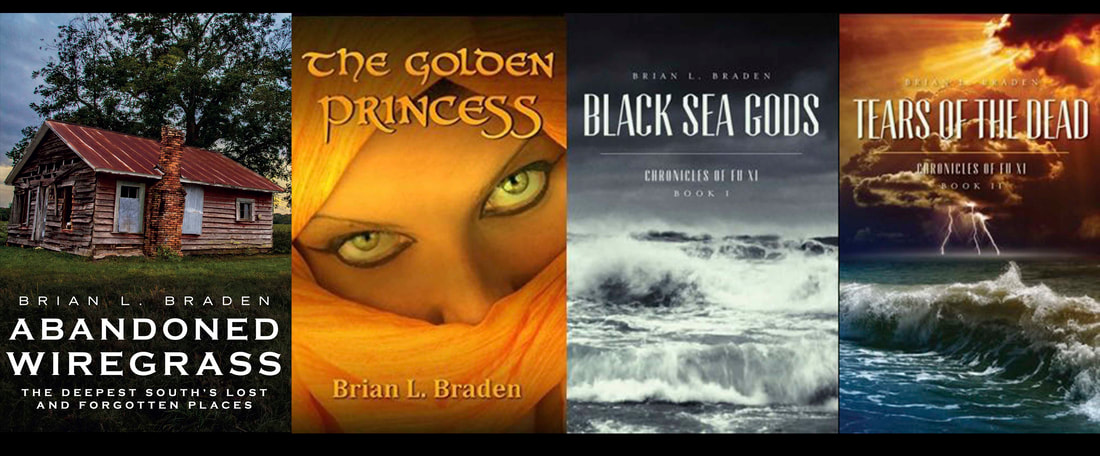 *** Disclaimer: All opinions expressed here are strictly my own personal views. If you enjoyed this blog, please like the post and leave a comment or if you're feeling brave, share it on social media. This platform is my entire advertising budget and is how I share the word on my books. Also visit my Facebook, my author page and check out my photography book from America Through Time, "Abandoned Wiregrass: The Deepest South's Lost and Forgotten Places." I turn 54 today and the Universe is trying to kill me. Let me explain.
As I celebrate another trip around the sun, the sun commemorated the occasion by unleashing a major solar storm aimed directly at our planet. While I’ll try not to take this personally, it does get me thinking. The solar flare carries the energy of billions of nuclear bombs. We might have some internet and GPS interruptions, but Earth will shrug it off. Life will go on. You see, our little planet has an a magnetic field that punches way above its weight class. The sun’s highly charged onslaught will go right around our planet. That incredible magnetic field will even protect the astronauts on the International Space Station. If our planet orbited just a little closer to the sun, we’d be fried. If we didn’t have such an exceedingly powerful (and unusual) magnetic field, we’d be fried. If we orbited only a little farther away, we’d be frozen. Scientist call this place Earth occupies “The Goldilocks Zone” because its not too hot and not too cold. In fact, it’s just right. It’s impossibly right. Our planet dances on the edge of impossibility. Go up about fifty miles and the atmosphere is too thin to support life. Beyond that, there is nothing but emptiness. Dig down about 18 miles and you enter a searing hot ocean of molten rock. To put it in perspective, our solar system is approximately 93 billion miles in diameter. Of that, a band less than 70 miles supports life. 70 miles out of 93 billion miles! Oh, it gets better. If our planet didn’t have a molten iron core, we wouldn’t be here. If our planet wasn’t blessed with an unusual amount of water, we wouldn’t be here. If an astroid hadn’t knocked off all those pesky dinosaurs, we wouldn’t be here. Our telescopes have discovered worlds circling other stars as far away as 13,000 light years. In all that searching they’ve discovered no signs of life, intelligent or otherwise. It doesn’t mean there isn’t life, its just that we haven’t found it. The Universe is about 98 billion light years across and overwhelmingly inhospitable, (mostly due its nature of being a bunch of nothing). Life needs stuff to survive. In the places where the Universe actually has stuff, that stuff hates life. A sliver of biosphere 70 miles thick supports the only life for at least 13,000 light years. Despite overwhelming odds, Earth teems with life, (some of it might even be intelligent.) This planet is about 4 billion years old, and, amazingly enough, has hosted life for most of that time. The Universe has tried to knock us off again and again. Yet, here we are. This brings me to today. I turned 54 today. Mathematically, I shouldn’t be here and neither should you. In the known universe, there isn’t anything like us, and like Earth. We are living, breathing miracles, little slivers of self-aware time-space. Our little planet dances on the edge of impossibility, therefore so do we. Statistically, we punch way above our weight. That thought fills me with gratitude and awe. I’m thankful God permitted me a brief time here to witness and participate in Creation. I hope to participate some more before the Universe finally knocks me off. I guess it’s time for a glass of wine, and prepare for another lap around the sun. *** If you enjoyed this blog, please like the post and leave a comment or if you're feeling brave, share it on social media. This platform is my entire advertising budget and is how I share the word on my books. Also visit my Facebook, my author page and check out my photography book from America Through Time, "Abandoned Wiregrass: The Deepest South's Lost and Forgotten Places." #birthday #joy #faith #hope #god #gettingold 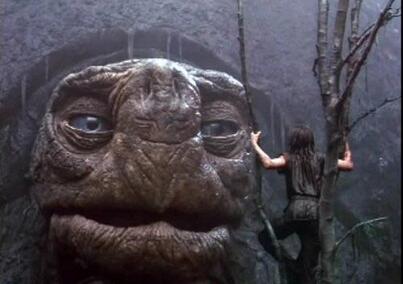 "We don't care that we don't care." (Neverending Story, 1984, Warner Bros.) "We don't care that we don't care." (Neverending Story, 1984, Warner Bros.) It’s Monday. I’ve been struggling all weekend to come up with something to blog about. Content, right? That’s what blogs are all about. Instead, I did yard work, took my kid to the park, visited my mom and dad, and eked out a synopsis for my next novel. In between, I followed the 9/11 anniversary on my social media feeds and all the fallout of President Biden’s COVID edicts. I’m not going to blog about any of that. Instead, I’m going to make a bold prediction. A controversial prediction. Are you ready? Prepare yourself. Here it comes… People die. In fact, everything living eventually dies. Crazy concept, huh? Planet Earth is the only place in the known universe (like, 98 billion light years of universe) known to harbor life, but is also the only place known to harbor death. Death is different than lifelessness. Life must first exist before one can have death. A planet that has never know life has also never known death. Death is a concept all unto its own. If Earth is the only place in the universe with life, then it is by definition also the only place in the universe with death. Therefore, death deserves serious contemplation. Not morbid contemplation, just a matter-of-factly examination of its reality. No one forgets to die. People die (even Jesus died, but he got better. That’s another topic entirely). Trees die. Bugs die. Bacteria and turtles die. You’ll die. I will die. Death is built into our DNA. It’s part of our programming. Seriously, it is. We have these things on our chromosomes call telomeres that act like a countdown clock (yes, I’m dumbing it down). These end-caps on your chromosomes get shorter and shorter as you age. When they run out, you run out. Scientist on are on the cusp of reprogramming these telomeres, and perhaps opening the door to human immortality. Good news, right? Or maybe not. If living forever was desirable you’d think evolution would have found a way to achieve it by now. Life has evolved to fill every environmental niche on Planet Earth, but immortality is nowhere to be found. Living creatures thrive in dark, oxygen-free environments at crushing depths near scorching undersea volcanic shafts. Insects can be found in the upper atmosphere on the edge of space. Creatures exist in the hottest deserts and the frigid poles. Birds fly, fish swim. Everywhere there is evidence of life filling the three dimensions of space, and yet no living creature naturally exists beyond the limits of time. It’s as if evolution has totally abandoned that niche. Sure, some trees live thousands of years and there are sharks and tortoises that live hundred of years, but eventually even they kick the bucket. Everything kicks the bucket. As far as we know, no living creature is truly immortal. Bottom line: No species that has developed immortality as an evolutionary survival mechanism. Crazy as it sounds, maybe death is part of the natural order of things. Maybe death is a survival mechanism. Maybe immortality runs counter to survival of the fittest. Maybe immortality is a BAD thing, especially for a self-aware intelligence. Any creature that lives forever is a creature that will never change, never evolve, never truly face consequences. All of this brings me to my point. Scientist often discuss a concept called “The Great Filter” as part of something called Drake Equation. This equation postulates how many advanced civilizations may exist in the universe. Since we have been discovering potentially habitual exoplanets over the past few decades, that equation has made a stronger and stronger case of advanced life out there somewhere. Yet, the cosmos remains strangely silent. Scientist may think we haven’t heard from aliens because there aren’t any due to this thing called “The Great Filter.” It could be they annihilated themselves in nuclear war, or were wiped out by an astroid impact, or maybe even a gamma ray burst. Maybe, just maybe, they discovered the secret to immortality. In doing so, these races of immortals simply faded away into digital oblivion. They no longer reproduced. They got lost in their own version of the Matrix or Oculus or Neurolink. Robots and computers served their every need, and they forgot how to take care of themselves. Oh, they may still be out there, but they’ve stopped being a part of their own environment. Time has a way of ossifying the spirit and the mind. I call it the Morla Effect, named after the immortal turtle in the movie Never-ending Story. In the movie, the hero Atrayu seeks the all- knowing, ancient being to help save their world from the terrible Nothing. He finds Morla a disinterested, bored entity who can’t be bothered with the affairs of mortals. Wise, but mad, Morla talks to herself and finishes each sentence with “Not that it matters.” She even says, “We don’t care that we don’t care.” In her case, immortality has become a living death I think immortality would induce the Morla Effect in us. It would kill what is best in humanity. In a world without consequence, love and relations would wither. Compassion would die. With it, art and music and the very beauty that makes life worth living. We, too, would eventually not care that we don’t care. Maybe death is a safety valve to keep life vibrant and ever changing. Immortality, while it sounds great, may be the worse thing a species can do to itself. Maybe death has an intrinsically important evolutionary purpose. With that said, death sucks. No one wants to die. No one wants those they love to die. A lot of people, me included, would like to give earthly immortality a test-drive. Pretty deep thoughts for a Monday, eh? Maybe I’ll write a story about it. See ya Friday. #immortality #neverendingstory #science #ethics #drakeequation #greatfilter #writing #blog 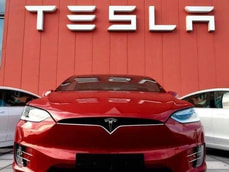 Welcome back to The Illusion Exotic. On Mondays I post about whatever. This week it was a certain Facebook whatever that got my attention. A post about electric cars is making the rounds on many of my friends’ Facebook pages. Here’s the post, maybe you’ve seen it already: "Total fuel consumption of U.S. airlines is approximately 19 billion gallons annually. Total fuel consumption for mining Ore for construction of electric car batteries is approximately 21 billion annually. The 21 billion gallons of fuel burned can only produce enough Ore to build 250,000 electric car batteries. The lifespan of an electric battery is 10 years and is not renewable. By 2050 these batteries will fill landfills with 50 million pounds of waste that does not break down. I wonder if people would still believe in electric power cars, vehicles or equipment if they knew how massive the carbon emissions footprint really was? So that you understand, more energy is used to mine for these batteries than they will ever produce." When I read it, my instincts told me this post was a pile of dog squeeze. The bold presentation of statements-as-facts without sources bugged me. It looked like a piece of poorly crafted disinformation. It also bugged me because my friends reposting it aren’t fools. They saw it, and in their minds it validated their worldview, so they reposted it. The post seduced them. That’s what disinformation does, it seduces the reader. I found who originally posted this to see if they were a reputable source or if they provided more information or sources in the comments section. No on both counts. It only took me a few minutes looking at reputable sources and doing some basic math to completely discredit almost all of it. Did I comment on the post or report it for misinformation? Of course not. He can say whatever he wants on his Facebook, that’s his right. Its’ also my right dissect the post here in the quiet and comfort of my own website. Let’s break the original post down, point by point. "Total fuel consumption of U.S. airlines is approximately 19 billion gallons annually." You’ll find that number “19 billion” number quickly using a Google search. You’ll also find 18 billion gallons (of what, jet fuel? avgas? Both?). I took a little extra time and went to the US Government Bureau of Transportation Statistics and US Energy Information Administration websites. In 2019 the US airlines (just airlines) used 12.1 billion gallons of fuel, or about 8% of the US’s annual petroleum use. Still, I could give the original poster credit for this one. This number doesn’t discredit the post, and I think that’s why the author put it first, but it’s that last one that holds any water. "Total fuel consumption for mining Ore for construction of electric car batteries is approximately 21 billion annually." 21 billion what? Are we still talking gallons? Gallons of what? Unleaded? Diesel? JP-8? No real statistician is going to use this figure, because you can’t get a standard measure with just “gallons” across different fuel types. That’s why national/international stats use barrel of oil, exajoules, thermal units, or some common energy standard. Second, what do they mean by “Ore”? Are we talking nickel? Cobalt? Lithium? Magnesium? Graphite? Because all of these are in electric vehicles (EV) batteries and all have very different mining processes and energy costs. For example, only 7% of all global nickel production (which comprises the bulk of the materials in Tesla electric car batteries) goes to EVs. Most nickel mining is for steel production, not EVs. So let’s say for simplicity sake this social media post says 21 billion gallons of petroleum is used annually for only 7% of the worlds nickel production. If this were the case, 300 billion gallons of fuel are used annually for nickel mining for other purposes, like steel. In comparison, the United States only used 124 billion gallons of finished motor fuel TOTAL last year. The stat doesn’t hold up beyond a cursory investigation. The background is too vague, or the numbers have been seriously warped to support the author’s opinion. "The 21 billion gallons of fuel burned can only produce enough Ore to build 250,000 electric car batteries." There were 3 million EVs produced globally last year alone. So I guess the over 2.75 million EVs materialized from thin air. This stat goes completely out the window. "The lifespan of an electric battery is 10 years and is not renewable. By 2050 these batteries will fill landfills with 50 million pounds of waste that does not break down." Right now, most Tesla EV batteries are 100% recyclable. Yep, you heard that right. Most can go on to be repurposed in other power applications because so much life remains in them. However, if they are not repurposed Telsa just patented a new recycling technology that may make them 92% recyclable. It is Tesla’s policy NONE of its batteries end up in landfills. As InsideEVs reports on 11 August of this year : “The manufacturer recently pointed out that 100 percent of the batteries it scraps are recycled and nothing ends up in a landfill. It has been setting up internal structures within the company to gather and recycle old battery packs for years and it believes that the companies that made the packs should also recycle them, arguing this is more efficient than having third parties do it…Tesla points out that through the use of this new process, it managed to recycle 1,300 of nickel, 400 tons of copper and 80 tons of cobalt last year alone.” Recycling will become more lucrative over the next ten to fifteen years, to the point about 40-50% of all materials going into EV battery production could be from recycled sources. However, as of now most of Tesla’s recycling has been on test batteries, not used consumer batteries. Why? Because most of its batteries are still on the road. Which brings me to the “10 year life on a battery” statement. That’s also made up. Depending on model, Tesla batteries are warranted for up to about 150,000 miles or eight years. That doesn’t mean that’s how long they last, that’s how long the company will guarantee them. At that point they will have about 70% of their original capacity. Some Model X Tesla cars are still on the original battery at 400K miles. Using the average American diving 15,000 miles a year, that comes out to 26 years of life. Tesla is now working on a million-mile battery. "I wonder if people would still believe in electric power cars, vehicles or equipment if they knew how massive the carbon emissions footprint really was? So that you understand, more energy is used to mine for these batteries than they will ever produce." Right now, with our current power grid and battery technology, an average electric car produces about 220 grams of CO2 per mile over its lifetime (150k miles). By lifetime, that “mine-to-wheel,” - raw materials to production to consumer use. From raw materials production to consumer, the average consumer fossil fuel vehicle getting 28 mpg (also lasting 150k miles), produces about 460 g/CO2/m. That’s more than double the CO2 footprint of a current EV. So, pretty much this whole viral Facebook post is crap. Why did I spend a few hours on a weekend researching all of this? Yes, I don’t have a life but that’s not important right now. Nor do I own a Tesla or an electric vehicle. In fact, I love gas powered vehicles and own two. I don’t care what you drive and I’m not an environmentalist. I can’t stand Facebook fact-checkers and I’m not trying to be one of them. I do, however, like truth. Every time you enter the world of social media, you enter a battlefield. The military calls it “information warfare.” It can be government disinformation, it can be corporate disinformation, it can deceptive advertising, or it might just be someone who wants to sow chaos. My point is that it’s important to take a few moments before you blindly repost something, ESPECIALLY of it reinforces your worldview. It’s important to ask yourself, “Is this accurate?” Because if you post it, and its false, it hurts your worldview and diminishes your credibility. Don’t help them. Don’t blindly take the bait. Think before you repost…unless you want to repost this, then go ahead. While you’re at it, visit my author page on Amazon and check out my great books. *** These are some of my sources. I forgot to bookmark all of them, but feel free to do some searching on your own: https://www.ucsusa.org/sites/default/files/2021-02/ev-battery-recycling-fact-sheet.pdf https://www.theguardian.com/sustainable-business/2017/aug/24/nickel-mining-hidden-environmental-cost-electric-cars-batteries https://www.statista.com/statistics/264417/oil-consumption-in-russia/ https://www.mckinsey.com/industries/metals-and-mining/our-insights/how-clean-can-the-nickel-industry-become https://www.sciencemag.org/news/2021/05/millions-electric-cars-are-coming-what-happens-all-dead-batteries https://oilprice.com/Energy/Crude-Oil/How-Much-Crude-Oil-Has-The-World-Really-Consumed.html https://www.iea.org/news/global-electric-car-sales-set-for-further-strong-growth-after-40-rise-in-2020 https://www.eia.gov/energyexplained/oil-and-petroleum-products/use-of-oil.php https://infomineo.com/mining-industry-in-energy-transition/ https://www.globalpetrolprices.com/articles/39/ https://www.eia.gov/tools/faqs/faq.php?id=23&t=10 https://insideevs.com/news/525965/tesla-battery-recycling-no-waste/ https://www.forbes.com/sites/daneberhart/2020/11/19/subsidizing-electric-vehicles-is-poor-policy-thats-about-to-get-worse/?sh=2d27f6d2b826 https://www.kbb.com/car-advice/how-do-electric-car-tax-credits-work/ https://www.nber.org/digest/jun19/assessing-federal-subsidies-purchases-electric-vehicles https://www.globalenergymetals.com/cobalt/cobalt-demand/ https://www.usitc.gov/publications/332/journals/the_supply_chain_for_electric_vehicle_batteries.pdf https://www.theverge.com/2020/9/22/21451670/tesla-cobalt-free-cathodes-mining-battery-nickel-ev-cost #disinformation #misinformation #electricvehicles #electriccars #tesla #elonmusk #elon #musk #environmentalism #facebook This article is reprinted from a previous blog. I killed off that blog because it had become sentient and tried to take over the world. Enjoy. We were expecting a new baby and my lovely bride’s nesting instincts kicked into high gear. She didn’t want to bring a new baby home to a dirty house, so she called a maid service and told me to take the kids and get lost for about four hours.
I had planned a day in the park, but Mother Nature had other ideas. Cold rain and sleet pelted the city all day. Then I had a great idea: I’d take the boys to the public library! I hadn’t been to a library in years and was looking forward to the experience. My kids quickly found books and quietly settled in for a good read. Not possessing a library card, I headed for the front desk. The bespectacled gentleman behind the desk kindly directed me to a table covered with application forms. It was fairly standard – name, address, phone number, e-mail. I quickly filled out the form and signed my John Hancock on the bottom, signifying my understanding the library police would find me if I was late returning a book. I returned to the desk where the same gentlemen carefully inspected my form. “Would you like internet access, sir?” “Yes, certainly.” “Then you’ll have to fill out the back, too.” “Oh, okay.” I flipped the form over. With the exception of a question asking what password I wanted and what level of internet access I desired, the form was almost identical to the front. I went back to the table and wrote in a password I could easily remember and checked my desired access level. I returned to the gentlemen behind the counter, who inspected the back of the form. “You need to write down your name, address, phone number and e-mail address.” I was a little perturbed, but didn’t show it. “All that information is on the front of the form. Do I have to fill out the name and address information again?” “Yes, please.” “Ah...okay.” A few minutes later I was back with my library card form, both front and back completely filled out. The diligent municipal civil servant carefully eyed both sides of the form for well over a minute, turning it over several times and strumming his fingers nervously. I was getting nervous, too. Did he know about all my overdue books from 4th grade? “Sir, I need your full middle name on this line.” “That’s my legal payroll signature block. Why do you need my full middle name?” “I’m sorry sir, but that’s our policy. I need your full middle name.” I sighed and added the rest of my middle name to the initial. “On the back side, too, please.” Keep your cool. “Okay.” Once again he studied the library card form. Chewing on the end of his pencil, he flipped the form back and forth. “I need to see a picture ID.” I pulled out my active duty military identification card and handed it to him. He didn’t give it a second glance and handed it back to me. “Do you have a driver’s license?” “Why yes, I do.” “May I see it, please?” “Why? Won’t my military ID do?” “No.” Resigned, I pulled out my driver’s license. Being in the military, I had a different permanent home of record than my current duty assignment. Since I renewed it in the mail, my license had no picture. He looked at me, looked my drivers license, back to me, then back to the license. “This is out of state and doesn’t have a picture.” “I’ve been stationed here for almost three years. I’m rather fond of my photo on my military I.D, would you like to see that one again?” He handed my license back. “Is this address correct?” “The one on the front or the back of the form?” Alarmed, he quickly turned the paper over, then shot me a nasty look - smartass. I smiled. “Do you have something with your current address on it?” “Yes, you’re holding it.” “No, I mean something official.” I fumbled through my wallet. Funny, but nowhere among the countless unpaid credit cards, membership cards, and receipts did I have anything with my current address on it. “No, I guess not.” “I’m sorry then, but I can’t issue you a library card.” Here I stood, able to produce two legal forms of ID, one of which was the ID card of an active duty military officer in the armed forces of the United States, and I couldn’t get a public library card. “You’re kidding, right?” “I don’t kid about things like this.” “Let me try this again,” I said calmly, “What do I have to do today so I can get a library card and check out some books for my kids so they won’t go home heartbroken?” I really think the guy wanted to help. It was either believe that or strangle him. Looking out the window at the downpour he smiled and asked, “Did you drive here?” After running through the parking lot in the pouring rain, I returned with my car registration; definitive, legal, soggy proof I actually lived where I said I lived. With a self-satisfied smile the Dewy Decimal Defender presented me my library card like a war medal. I looked over my shoulder hoping someone was taking a photo for posterity. “Is there anything else I can do for you, sir?” “Actually, yes there is,” I said, stuffing my new library card in my wallet next to my soaked automobile paperwork. “Get a job at voter registration.” *** If you enjoyed this blog, please like the post and leave a comment or if you're feeling brave, share it on social media. This platform is my entire advertising budget and is how I share the word on my books. Also visit my Facebook, my author page and check out my photography book from America Through Time, "Abandoned Wiregrass: The Deepest South's Lost and Forgotten Places." |
Archives
July 2023
Categories
All
|

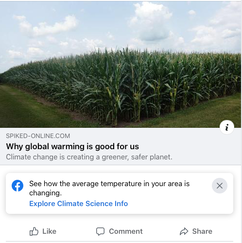
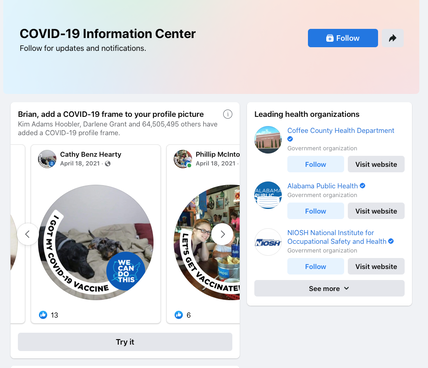
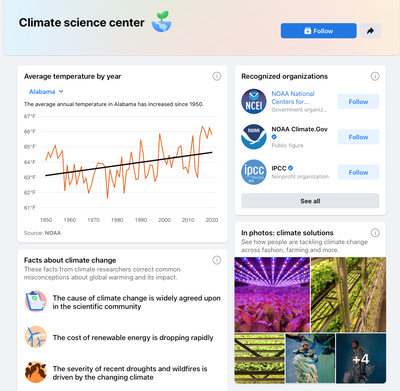
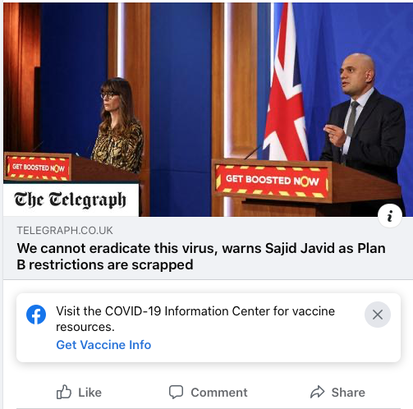
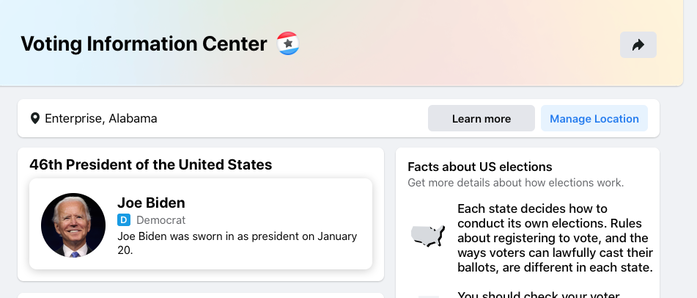
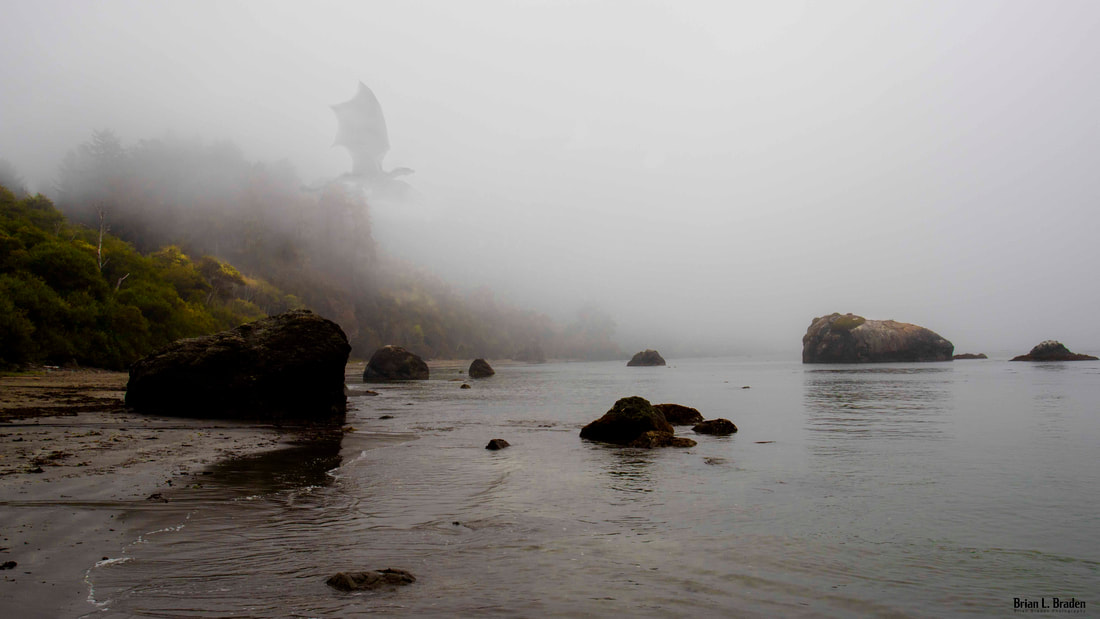


 RSS Feed
RSS Feed